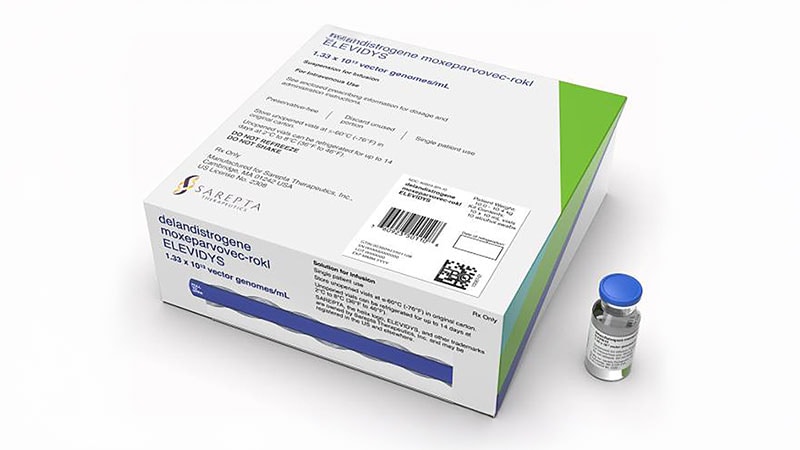Sarepta Therapeutics has temporarily suspended use of the gene therapy Elevidys in non-ambulatory patients with Duchenne muscular dystrophy (DMD) after a second patient taking the drug died from acute liver failure, the company announced in a statement.
The first death — a teenage boy who also died from acute liver failure after receiving Elevidys — was reported by the company in March. Both deaths occurred in non-ambulatory individuals with DMD.
“Sarepta is temporarily suspending shipments of Elevidys for non-ambulatory patients while an enhanced immunosuppressive regimen is evaluated, discussed with regulatory bodies, and put in place,” the company wrote.
“For ambulatory patients, no treatment changes are being proposed and the current practice of administering corticosteroids before and after Elevidys infusion, along with post-treatment monitoring, remains the same,” Sarepta advised.
“In the commercial setting, non-ambulatory patients should no longer receive Elevidys. Health authorities, investigators and physicians are being informed so that patient care can be quickly adjusted,” Roche, who partners with Sarepta to commercialize Elevidys outside the US, said in a separate statement.
The second patient death has also prompted Sarepta to pause dosing in the ENVISION clinical study, a global, randomized, placebo-controlled trial evaluating Elevidys in ambulatory and non-ambulatory patients with DMD aged 8-17 years.
ENVISION is the confirmatory trial required under the FDA’s accelerated approval pathway for non-ambulatory patients. The trial is already on a temporary clinical hold in Europe.
The pause will allow the company to evaluate a protocol amendment to incorporate an enhanced immunosuppressive regimen for the non-ambulatory patient cohort and incorporate any additional feedback from the FDA, Sarepta said in the statement.
The FDA will approve the changes before screening and dosing in ENVISION can resume.
“We are taking immediate, decisive steps to better understand and mitigate the risk of acute liver failure, including enhancing the immunosuppressive regimen, for those with Duchenne who are non-ambulatory,” Louise Rodino-Klapac, PhD, Sarepta’s chief scientific officer and head of research and development, said in the statement.
Globally, more than 900 patients with DMD have been treated to date with Elevidys, including approximately 140 non-ambulatory patients.
DMD is a rare, genetic, muscle-wasting disease that primarily affects males and progresses rapidly from early childhood.
In June 2023, the US FDA granted accelerated approval to Elevidys, the first gene therapy designed to address the underlying genetic cause of DMD. Elevidys is a one-time treatment administered through a single intravenous dose.
Initial approval was for children aged 4-5 years with DMD and a confirmed mutation in the DMD gene.
In June 2024, Peter Marks, MD, PhD, then director of the FDA’s Center for Biologics Evaluation and Research, unilaterally gave final expanded approval to Elevidys for DMD.
As previously reported by Medscape Medical News, Marks overrode his own FDA reviewers, who said the product lacked substantial evidence of efficacy. He acknowledged the drug had not met its primary endpoint but said he found secondary and exploratory endpoints “compelling” and cited an unmet medical need.
Source link : https://www.medscape.com/viewarticle/dmd-gene-therapy-elevidys-suspended-after-second-patient-2025a1000g2z?src=rss
Author :
Publish date : 2025-06-16 17:41:00
Copyright for syndicated content belongs to the linked Source.
